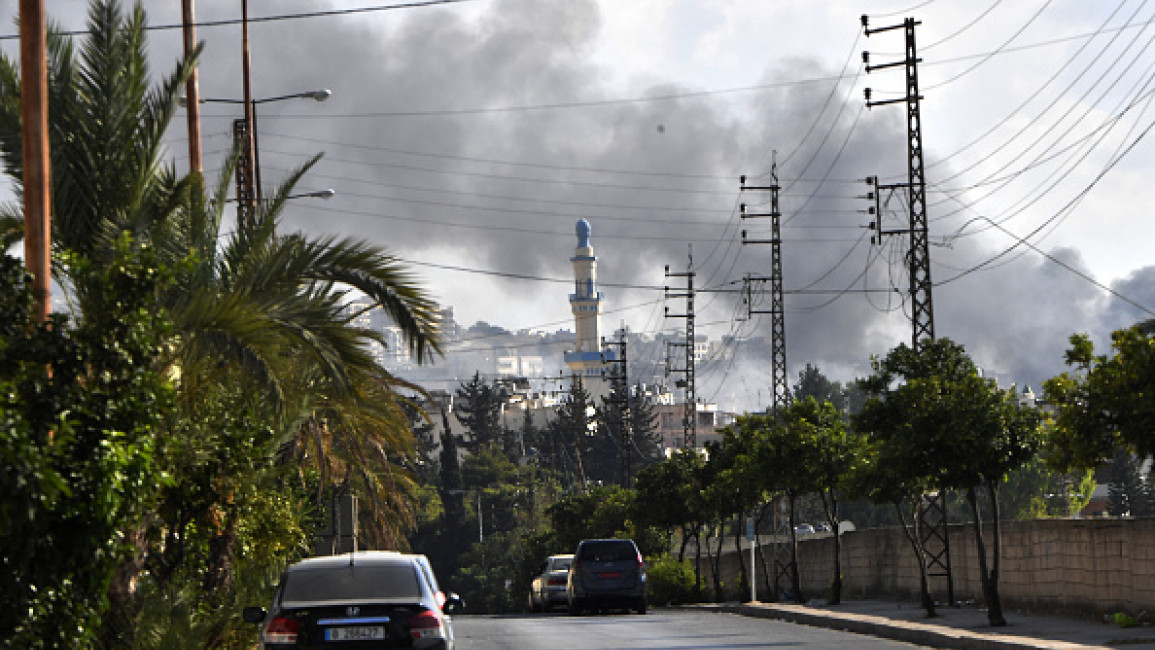Lebanon's Sidon a 'ghost town' as clashes rock Ain al-Hilweh Palestinian camp
As sporadic clashes continue to shake Lebanon’s largest Palestinian refugee camp, the adjacent coastal city of Sidon has been described as a ghost town as roads, schools and businesses have had to close.
Ain al-Hilweh – the largest of 12 Palestinian camps in Lebanon with a population of tens of thousands – has been a war zone for days, after similar clashes in late July to early August.
Nearly a dozen people have died in the camp so far in the latest round of fighting, including militants and civilians.
The warring factions are Fatah, the party of Palestinian President Mahmoud Abbas, and Islamist groups. Observers say Islamists are trying to take control of the camp from Fatah.
As hundreds of Palestinian residents have been forced to leave the densely populated urban camp, the clashes have been a reason of growing concern for Sidon’s residents.
Stray bullets and shells have fallen on schools, government buildings, businesses, and Lebanese army checkpoints in the city, wounding civilians and soldiers. One Lebanese man was killed by a stray bullet.
The main road linking Sidon to Beirut and south Lebanon both ways has been cut off, and residents have been asked to stay indoors.
The city has been described as a ghost town, and life has come to a standstill.
A ceasefire which was supposed to go into effect on Monday has failed to hold.
#بالفيديو
— موقع الخنادق (@Alkhana2023) September 12, 2023
جانب من تجدد الاشتباكات في مخيم عين الحلوة جنوب لبنان#لبنان #صيدا #مخيم_عين_الحلوة #الخنادق pic.twitter.com/EWse0n8CDo
Translation: An angle showing the renewed clashes in Ain al-Hilweh camp in south Lebanon
"The fighting intensified in the afternoon and stray bullets reached several areas in southern Sidon (the camp lies southeast of the city) such as the Sinniq bridge all the way to the coastal road that goes south. The shooting and bullets were dangerous, and the sound could be heard across Sidon," a local resident called Khalid told The New Arab.
He spoke of material damage such as broken glass and bullet riddled buildings near the Sidon branch of Lebanon’s Central Bank.
"Overall, the situation is very worrying in Sidon," Ayan, a nurse in the city, told The New Arab.
"Everything is shut because of the camp and people are afraid to go out in fear of stray bullets and shelling because they’re being fired arbitrarily. A lot of people who escaped are sitting outside mosques," he explained.
"You can say Sidon is paralysed, and as I’m talking to you, I can hear the gunfire from the camp."
The clashes have seen an increase in anti-Palestinian sentiment from some Lebanese on social media.
Speaking to local broadcaster Al Jadeed on Tuesday, Sidon MP Ousama Saad said the clashes are happening between Fatah and Islamist militants who are "wanted by the Lebanese state," claiming that there was a "regional cover" for the fugitives in the camp.
Around 475,000 Palestinian refugees are registered with UNRWA in Lebanon, but there are no statistics for actual numbers. They cannot become naturalised Lebanese citizens and are limited to only certain professions.
Palestinian refugee camps are controlled by Palestinian armed factions rather than the Lebanese state, and have been the scene of fighting before.



